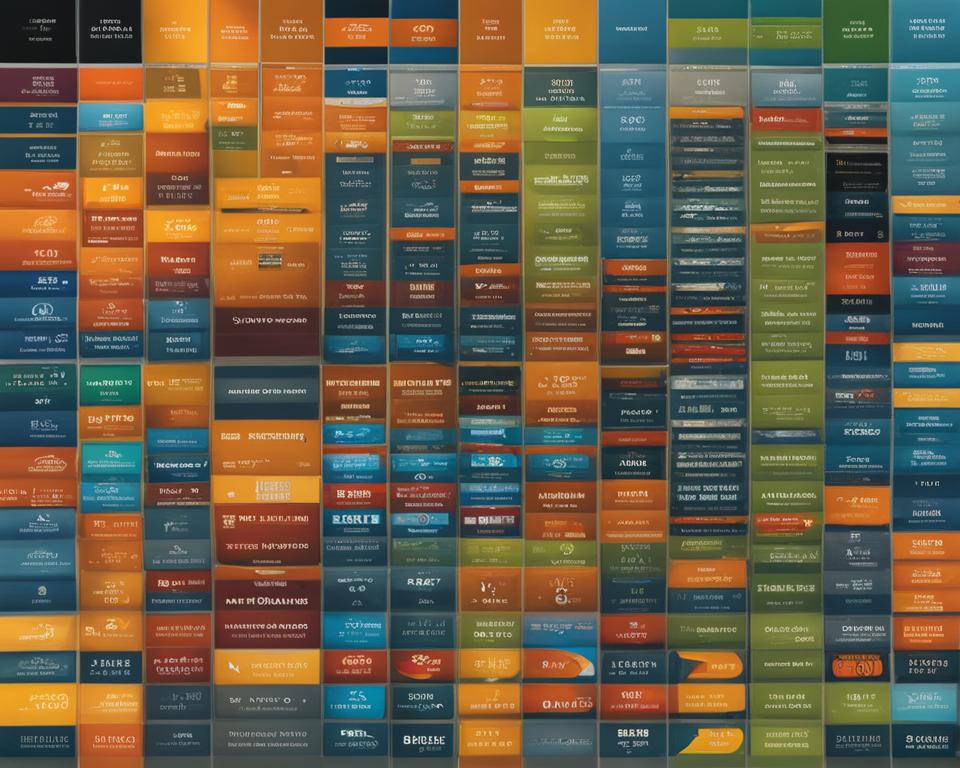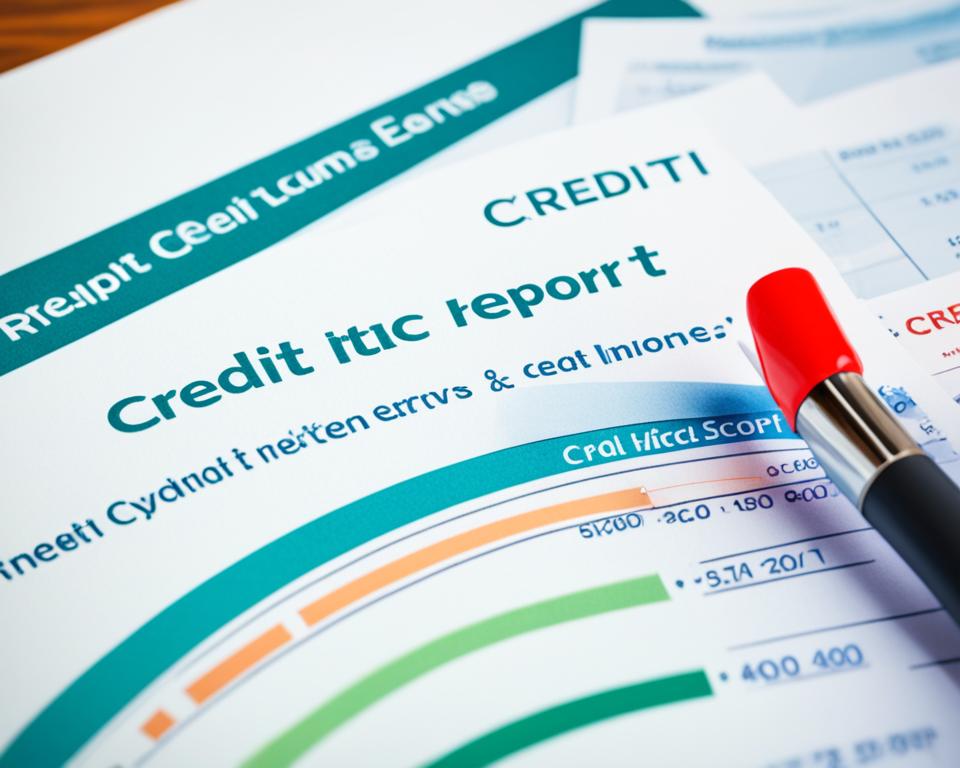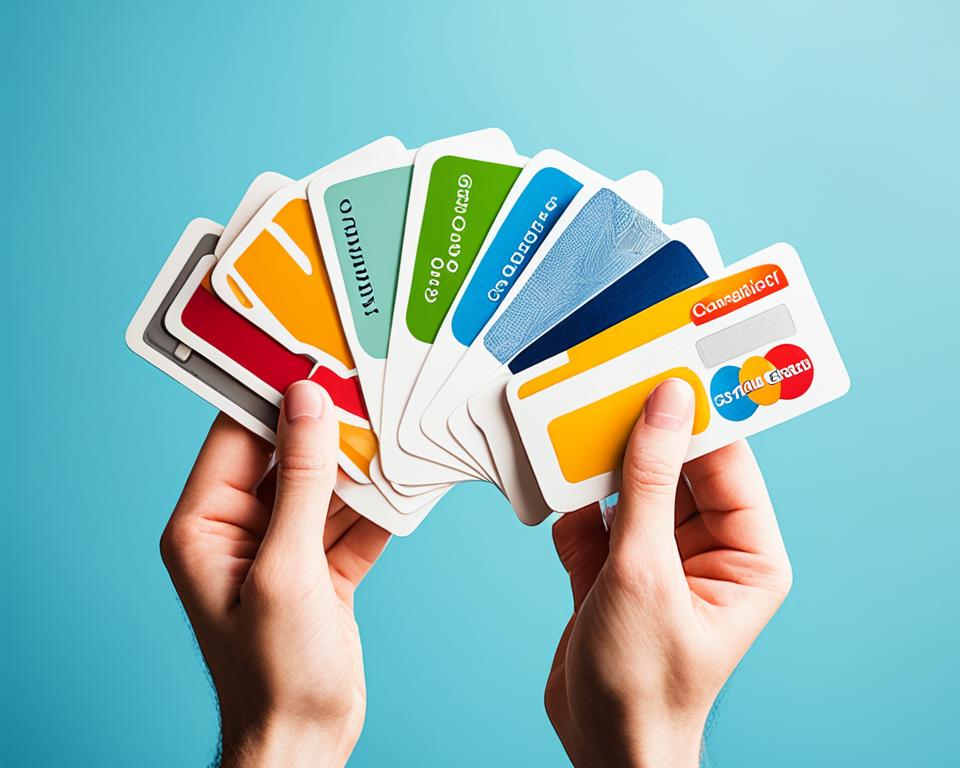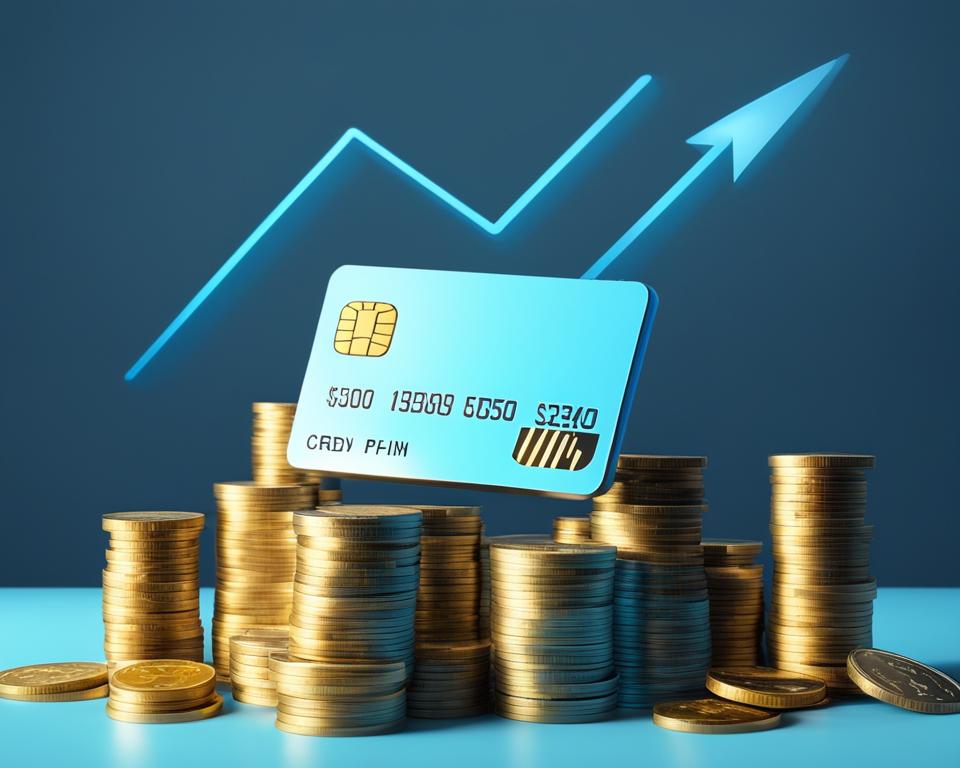When it comes to credit cards, there isn’t a one-size-fits-all answer to how many you should have. It’s a balancing act between having enough accounts to build a solid credit score and not having too many that it becomes difficult to manage. In this article, we will explore the factors to consider when determining the optimal number of credit cards for your financial situation and share strategies for managing multiple cards effectively.
Having a reasonable number of credit accounts is important for scoring models to issue you a credit score and make you an attractive borrower. While there is no set limit, having less than five credit accounts can make it more challenging for scoring models to evaluate your creditworthiness. On the other hand, having too many credit cards can result in missed payments and drag your credit scores down.
The number of credit cards you have plays a role in two important credit scoring factors: average credit age and utilization. These factors impact your credit scores and, in turn, your ability to secure loans and rentals. Building a credit portfolio with five or more accounts, which can be a combination of credit cards and loans, is recommended by credit bureaus. On average, Americans have three credit cards and 2.3 retail (store) cards.
While credit scoring formulas do not penalize you for having too many credit accounts, having too few can be detrimental. It’s essential to find a balance that suits your financial goals and abilities. Let’s explore the impact of credit card count on credit scores and the factors to consider when determining the ideal number of credit cards for you.
Key Takeaways:
- There isn’t a set number of credit cards you should have, but having less than five credit accounts can make it more difficult for scoring models to give you a credit score.
- Credit bureaus suggest having five or more accounts, which can be a mix of credit cards and loans, to build a strong credit portfolio over time.
- The number of credit cards you have impacts your average credit age and utilization, which are factors that affect your credit scores.
- Having too many credit cards can lead to missed payments and lower credit scores, while too few can make it harder to get a high score.
- It’s important to consider your financial situation and ability to manage multiple cards before deciding how many credit cards to have.
The Impact of Credit Card Count on Credit Scores
The number of credit cards you have can significantly impact your credit scores. Understanding how your credit card count affects your credit scores is essential for managing your financial well-being.
Credit Card Count and Credit Scores
“Having too few accounts can make it hard for scoring models to render a score for you.”
When it comes to credit scores, having too few credit card accounts can be detrimental. Scoring models rely on a sufficient credit history to assess your creditworthiness. Having four or fewer accounts is generally considered a “thin file,” making it harder to score high and potentially raising concerns for lenders.
The Role of Credit Utilization
“Having more credit cards can help keep your credit utilization low, which is a factor that affects your credit scores.”
Credit utilization refers to the percentage of your available credit that you are using. It is a significant factor in calculating credit scores. People with the best scores tend to use less than 10% of their credit limits. Having more credit cards can help keep your credit utilization low, as you have access to more available credit. By spreading your charges across multiple cards and using them responsibly, you can keep your credit utilization rate in check.
Maximizing Your Credit Scores
In order to maximize your credit scores, it’s important to find the right balance. Having too few credit card accounts can hinder your scores, while having too many can potentially lead to mismanagement and missed payments. It’s crucial to find the optimal number of credit cards that allows you to maintain a healthy credit utilization rate and manage your finances effectively.
Summary
When it comes to credit card count and credit scores, finding the right balance is key. Having too few accounts can make it difficult to establish a strong credit history, while having too many can increase the risk of mismanagement. By understanding how credit utilization impacts your credit scores and managing your credit cards responsibly, you can maintain a good credit standing and enjoy the benefits of a healthy credit profile.
Factors to Consider When Determining Credit Card Count
When determining the ideal number of credit cards for your financial situation, several factors need to be taken into consideration. These factors include your current credit score, financial situation, and spending habits. Each individual’s circumstances will vary, so it’s important to evaluate these factors before deciding how many credit cards to have.
If you have a poor or fair credit score, it may be best to hold off on opening a new credit card until your credit score improves. Opening a new card when your credit score is low could result in higher interest rates or limited credit limits. However, if you have a good or exceptional credit score, opening a new credit card can provide opportunities for better rewards, increased credit limits, and improved credit utilization ratios.
Another aspect to consider is your financial situation. It’s important to assess your ability to manage multiple cards and pay your bills on time. If you’re confident in your financial discipline and organizational skills, having multiple credit cards may be beneficial. However, if you struggle with managing payments or keeping track of due dates, it may be best to limit the number of credit cards you have to avoid late payments or missed payments.
Finally, your spending habits should also be taken into account. If you’re a frequent traveler, it may be advantageous to have a travel rewards credit card to earn points or miles on your purchases. Alternatively, if you prioritize cashback rewards, having a credit card that offers higher cashback percentages on specific categories, such as groceries or gas, may be more beneficial.
Key Factors to Consider:
- Credit score
- Financial situation
- Ability to manage multiple cards
- Spending habits
By carefully considering these factors, you can make an informed decision about the ideal number of credit cards for your financial needs. It’s important to remember that the number of credit cards you have should align with your ability to manage them responsibly and make timely payments.
As with any financial decision, it’s recommended to regularly review your credit card count and make adjustments based on your evolving financial circumstances and goals.

Pros and Cons of Different Credit Card Counts
| Number of Credit Cards | Pros | Cons |
|---|---|---|
| 1-2 |
|
|
| 3-5 |
|
|
| 6+ |
|
|
Benefits of Having Multiple Credit Cards
Having multiple credit cards can offer several advantages and perks that can enhance your financial life. By strategically selecting a mix of credit cards, you can unlock various benefits and maximize savings. Here are some key benefits of having multiple credit cards:
Earn More Rewards and Benefits
One of the major advantages of having more than one credit card is the ability to earn a wide range of rewards and benefits. Each credit card comes with its own rewards program, whether it’s cash back, airline miles, hotel points, or other perks. By diversifying your credit card portfolio, you can earn rewards on different types of spending and maximize your savings. For example, you can use one card that offers bonus cash back on dining and entertainment expenses, while using another card that provides extra rewards for travel purchases. This way, you can earn rewards on various categories of spending and get the most out of your credit cards.
Increased Spending Power
Having multiple credit cards also gives you more flexibility and increased spending power. Each credit card comes with its own credit limit, and by having multiple cards, you have access to a higher total credit limit. This can be particularly useful for larger purchases or unexpected expenses that may exceed the credit limit of a single card. By spreading out your purchases across different cards, you can manage your credit utilization better and avoid nearing the maximum credit limit on any individual card.
Enhanced Financial Security
Another benefit of having multiple credit cards is the added layer of financial security it provides. In case one of your credit cards is compromised or frozen, you can rely on your other cards to continue making purchases and managing your expenses. This safety net can be particularly valuable during emergencies or when traveling, ensuring that you always have access to funds when you need them. Additionally, having multiple cards can help you maintain a good credit score, even if one of your cards has a high balance, as long as you manage your overall credit utilization responsibly.
In summary, the benefits of having multiple credit cards include the ability to earn more rewards and benefits, increased spending power, and enhanced financial security. With careful planning and responsible credit card management, multiple credit cards can help you optimize your financial opportunities and make the most of the rewards and perks offered by different card issuers.
Downsides of Having Too Many Credit Cards
While having multiple credit cards can offer advantages, such as increased spending power and the ability to earn rewards, there are also several downsides to consider. It’s important to be aware of the potential disadvantages and manage your credit card usage responsibly.
- Complicated Management: Managing multiple credit cards can become overwhelming and complicated. It is necessary to keep track of various due dates, credit limits, and payment amounts. This can lead to confusion and increase the likelihood of missing payments or making mistakes, which can negatively impact your credit score.
- Potential Fees and Interest Charges: Owning too many credit cards can result in additional fees and potential interest charges. Many credit cards come with annual fees, and if you have multiple cards, these fees can quickly add up. Additionally, carrying balances on multiple cards can lead to interest charges, which can increase your debt and financial burden.
- Increased Risk of Debt: Having numerous credit cards can tempt you to overspend and rely too heavily on credit. If you carry balances on multiple cards and cannot pay them off in full each month, you risk accumulating unnecessary debt. Carrying large amounts of debt can negatively affect your credit score and make it more challenging to obtain loans or secure favorable interest rates in the future.
- Lower Credit Score: Owning a large number of credit cards can make you appear risky to lenders and result in a lower credit score. Credit scoring models take into account the number of credit accounts you have, and having too many cards can be seen as a potential risk for lenders. Moreover, opening multiple credit cards within a short period of time can trigger multiple hard inquiries, further lowering your credit score.
It’s crucial to be responsible when managing multiple credit cards. Avoid carrying balances on multiple cards, pay your bills on time, and keep track of your credit utilization to prevent unnecessary debt and maintain a healthy credit score. By carefully considering the potential downsides and taking responsible measures, you can make informed decisions about the number of credit cards you own.

How Multiple Credit Cards Affect Credit Scores
Multiple credit cards can have both positive and negative effects on your credit score, depending on how you manage them. One of the key factors that influence your credit score is credit utilization, which is the ratio between your credit card balances and credit limits. Having multiple credit cards can help keep your utilization rate per card lower, as long as you maintain low balances and avoid overspending.
“Having multiple cards can help keep your credit utilization rate lower, as long as you maintain low balances.”
However, it’s important to note that having too many credit cards can also increase the risk of missed payments and make you appear more risky to lenders. While having a diverse credit profile can be beneficial, it’s crucial to ensure that you can manage all your credit accounts responsibly.
To illustrate the impact of multiple credit cards on credit scores, let’s consider a hypothetical example:
| Credit Score Factors | Impact on Credit Score |
|---|---|
| Credit Utilization | If you have multiple credit cards and maintain low balances, your credit utilization rate per card can be lower, positively impacting your credit score. |
| Missed Payments | If you have too many credit cards to manage effectively, you may be at a higher risk of missing payments, which can negatively impact your credit score. |
| Lender Perception | Having an excessive number of credit cards can make you appear more risky to lenders, potentially lowering your credit score. |
As you can see, managing multiple credit cards requires careful consideration and responsible credit behavior. It’s essential to keep your credit utilization low, make all payments on time, and avoid taking on more credit cards than you can handle.
Ultimately, having a strategic approach to managing your credit cards is key to maintaining a healthy credit score while enjoying the benefits that multiple cards can offer. In the next section, we will provide tips for effectively managing multiple credit cards and maximizing their potential advantages.
Tips for Managing Multiple Credit Cards
Managing multiple credit cards can be overwhelming, but with the right strategies and best practices, you can effectively handle numerous credit cards while maximizing their benefits. Follow these tips to keep your credit card portfolio organized and your finances in check.
Create a Payment Plan
One of the most important aspects of managing multiple credit cards is ensuring you make timely payments. Consider automating your monthly payments or changing the due dates to coincide with your payday. By setting up automatic payments, you can avoid missing any payments and incurring late fees or negative impacts on your credit score.
Monitor Your Credit Utilization
Credit utilization, the ratio of your credit card balances to your credit limits, is an important factor that can influence your credit score. Aim to keep your credit utilization below 30% per card to maintain a healthy credit profile. With multiple credit cards, it’s crucial to monitor your utilization across all cards and distribute your expenses accordingly.
Choose the Right Mix of Cards
When managing multiple credit cards, diversify your credit card portfolio to maximize rewards and benefits. Select cards that offer different rewards programs and perks that align with your spending habits. For example, if you frequently travel, consider a credit card that offers travel rewards or airline miles. By strategically choosing your cards, you can optimize your savings and earn valuable rewards.
Stay Organized
Organization is key when managing multiple credit cards. Set up reminders for due dates, keep track of your monthly statements, and regularly review your credit card activity. Use a digital or physical filing system to store important documents, such as credit card agreements and payment receipts. By staying organized, you can easily access necessary information and ensure compliance with your financial responsibilities.
Monitor Your Credit Reports
Regularly checking your credit reports is essential for detecting any errors or fraudulent activity. Obtain your free annual credit reports from the three major credit bureaus—Equifax, Experian, and TransUnion—and review them for inaccuracies. If you notice any discrepancies, promptly dispute them with the respective credit bureau to maintain the accuracy of your credit history.

| Benefits | Drawbacks |
|---|---|
| 1. Better rewards and benefits | 1. Increased risk of overspending |
| 2. Enhanced financial flexibility | 2. Higher potential for fees and interest charges |
| 3. Increased credit utilization options | 3. Difficulty in managing multiple due dates |
| 4. Additional security in case of card loss or theft | 4. Potential negative impact on credit scores |
Remember, managing multiple credit cards requires responsibility and discipline. By implementing these tips and adhering to best practices, you can effectively handle numerous credit cards and reap the benefits they offer. Stay organized, stay on top of your payments, and monitor your credit activity to maintain a healthy credit profile.
The Role of Credit History in Credit Scores
Your credit history plays a significant role in determining your credit scores. Creditors prefer to see a long, stable credit history, which is why it’s important to start building credit as early as possible.
When it comes to credit scores, the length of your credit history matters. Lenders look for a track record of responsible credit management, so a longer credit history generally indicates a lower risk for them. If you have a short credit history or no credit history at all, it can be more challenging to obtain credit or secure favorable terms.
Opening new credit cards can temporarily impact the average length of your credit history. Each time you apply for a new card, it becomes a new account on your credit report, which may lower the average length. However, this impact is usually temporary, and your credit history will bounce back over time as you establish a positive payment history with the new card.
It’s important to note that closing a credit card can also have an impact on your credit history. If you have a compelling reason to close a card, such as high fees or poor service, it may be worth considering. However, be aware that closing a card could temporarily lower your credit scores as it reduces the overall length of your credit history.
Building and maintaining a solid credit history is essential for achieving your financial goals. It demonstrates to lenders that you are a responsible borrower and increases your chances of getting approved for loans, mortgages, or better credit card offers.
Remember, improving your credit history takes time and patience. It’s important to make timely payments, keep credit utilization low, and avoid taking on unnecessary debt. By managing your credit responsibly, you can strengthen your credit history and improve your credit scores over time.
Impact of Credit Inquiries on Credit Scores
When you apply for a new credit card, the issuer will typically request a copy of your credit report from one or more credit bureaus. This results in a hard inquiry, which is recorded on your credit history. While a single hard inquiry may have little effect on your credit scores, multiple inquiries within a short period of time can raise concerns for lenders.
Having a high number of credit inquiries can make you appear more risky to lenders as it suggests that you may be seeking credit from multiple sources. This can negatively impact your credit scores, making it more difficult to secure favorable interest rates and loan terms in the future.
It’s important to note that not all credit inquiries have the same impact on your credit scores. For example, inquiries related to credit card applications are generally treated the same, while inquiries for mortgage or auto loans within a short timeframe are typically grouped together as a single inquiry.
Some credit card issuers have implemented policies to address the potential risks associated with multiple credit inquiries. For instance, the Chase 5/24 rule limits approvals for individuals who have applied for more than five credit cards within the past 24 months.
To minimize the impact of credit inquiries on your credit scores, it’s essential to be mindful of how many credit card applications you make and space them out over time. Applying for credit cards only when necessary and strategically can help preserve your credit scores and maintain your financial stability.
Key Takeaways:
- Credit inquiries are made when you apply for a new credit card and can have a temporary negative impact on your credit scores.
- Multiple credit inquiries within a short period of time can make you appear more risky to lenders.
- Some credit card issuers have policies in place, like the Chase 5/24 rule, to mitigate the risks associated with multiple credit inquiries.
- Being mindful of the number of credit card applications you make and spacing them out over time can help minimize the impact on your credit scores.

Credit Card Count and Financial Responsibility
When it comes to credit card ownership, responsible financial behavior should always be your top priority. Responsible credit card ownership means making timely payments, keeping balances low, and using credit cards only for purchases that you can afford to pay off. While having more credit cards can provide opportunities for rewards and benefits, it also requires additional discipline and organization to manage them effectively.
By being financially responsible, you can build a positive credit history, improve your credit scores, and gain access to better financial opportunities. Here are a few essential credit card management tips to help you become more financially responsible:
- Pay your bills on time: Late payments can negatively affect your credit score and incur additional fees. Set up automatic payments or use payment reminders to ensure you never miss a payment deadline.
- Keep balances low: Maintaining low balances on your credit cards helps improve your credit utilization ratio, which is an important factor in determining your credit score. Aim to keep your credit utilization below 30% of your available credit limit.
- Resist impulse spending: It’s crucial to use credit cards responsibly and only make purchases that align with your budget. Avoid overspending or using credit cards for unnecessary expenses.
- Regularly review your statements: Take the time to go through your credit card statements and verify all charges. Report any unauthorized transactions or errors to your credit card issuer immediately.
- Monitor your credit reports: Regularly check your credit reports from the major credit bureaus to ensure their accuracy and to identify any suspicious activity. Address any errors promptly to protect your credit.
By following these credit card management tips, you can maintain financial responsibility and make the most of your credit cards. Responsible credit card ownership not only benefits your financial well-being but also sets the foundation for achieving your long-term financial goals.
Choosing the Right Mix of Credit Cards
When it comes to selecting credit cards, finding the right mix is crucial for optimizing your rewards and benefits while aligning with your spending habits and financial goals. Consider the different rewards and benefits offered by each card to make an informed decision.
Travel Rewards
If you frequently travel, look for credit cards that offer travel rewards or benefits. These cards often provide airline miles, hotel discounts, or access to airport lounges. By selecting a travel rewards card, you can maximize your savings on flights, hotels, and other travel-related expenses.
Cash Back
If cash back is your priority, explore credit cards that offer higher cash back percentages on specific categories such as groceries or gas. These cards allow you to earn money back on your everyday purchases, providing a tangible benefit that can add up over time.
“Choosing the right mix of credit cards can help you optimize your savings and maximize the benefits you receive.”
Rewards Programs
Consider credit cards with diverse rewards programs that cater to your interests and lifestyle. For example, if you are a food enthusiast, look for cards that offer dining rewards or culinary experiences. If you enjoy entertainment, choose cards that provide discounts on movie tickets or concert tickets.
Balance Transfer and Low-interest
Individuals looking to consolidate their debt or pay off high-interest balances may benefit from credit cards that offer balance transfer options or low introductory interest rates. These cards can help you save on interest payments and accelerate your path to financial freedom.
Remember, the key is to find credit cards that align with your spending habits and financial goals. By carefully selecting the right mix of cards, you can optimize your savings, maximize rewards, and make the most of your credit card portfolio.
Balancing Credit Card Count and Utilization
When it comes to managing your credit cards, finding the right balance between the number of cards you have and your credit card utilization is essential for maintaining a healthy credit score. Credit card count and utilization play a significant role in how lenders perceive your creditworthiness and can impact your ability to secure important things like loans and rental agreements.
To effectively balance your credit card count and utilization, it’s important to understand a few key concepts.
The Importance of Credit Card Utilization
Credit card utilization refers to the percentage of your available credit that you are currently using. It is a major factor in determining your credit score. Generally, it is recommended to keep your credit card utilization ratio below 30% per card.
Having multiple credit cards can help achieve a low utilization ratio by spreading out your charges across different cards. This means that instead of relying heavily on one card and utilizing a significant portion of its available credit, you can keep your utilization rate low on each individual card.
For example, if you have one credit card with a $10,000 limit and consistently carry a balance of $3,000, your utilization ratio would be 30%. However, if you spread your charges across two credit cards, each with a $10,000 limit, and keep your balances at $1,500 on each card, your utilization ratio would be only 15% per card, which is considered lower and more favorable.
Managing Credit Card Utilization Responsibly
While having multiple credit cards can help optimize your credit card utilization, it’s crucial to use them responsibly. Avoid overspending and accumulating high balances, as this can quickly lead to financial difficulties and negatively impact your credit score.
To effectively manage your credit card utilization:
- Set a budget and spend within your means.
- Keep track of your charges and regularly monitor your credit card balances.
- Pay your credit card bills on time and in full whenever possible.
- Avoid carrying high balances from month to month, as this can result in high interest charges.
By using credit cards responsibly and keeping your balances low, you can maintain a healthy credit card utilization ratio while benefiting from the rewards and perks that multiple credit cards can offer.
Considerations for Opening New Credit Cards
Before opening a new credit card, there are several factors to consider:
- Evaluate your current financial situation and determine if you need another credit card. Assess your income, expenses, and existing credit card usage to understand if adding a new card aligns with your financial goals.
- Consider the potential impact on your credit score. Opening a new credit card account can temporarily lower your credit score due to the creation of a new account and the resulting hard inquiry on your credit report. However, this impact is usually short-term and can be offset by responsible credit card management.
- Assess the benefits and rewards offered by the card. Different credit cards provide various perks such as cash back, travel rewards, or points. Evaluate how these benefits align with your spending habits to maximize the value you can derive from the new card.
- Research any associated fees. Some credit cards come with annual fees, balance transfer fees, or foreign transaction fees. Make sure to review the terms and conditions to understand the cost implications of the new card.
By considering these factors, you can make an informed decision when opening a new credit card and ensure that it aligns with your financial needs and goals.
Example Benefits Comparison Table:
| Credit Card | Benefits | Annual Fee |
|---|---|---|
| Cashback Card | Earn 2% cashback on all purchases | $0 |
| Travel Rewards Card | Earn 1.5x points on travel expenses | $95 |
| Grocery Rewards Card | Earn 3% cashback on grocery purchases | $0 |
Based on the benefits comparison table, if you frequently travel, a travel rewards card may be more beneficial despite the annual fee. However, if you primarily spend on groceries, a cashback card or a grocery rewards card with no annual fee might be the better choice for you.
Utilizing Credit Cards for Financial Emergencies
While it’s always best to have emergency savings, credit cards can provide a financial safety net during unexpected expenses. When faced with a crisis such as job loss or unexpected medical bills, having two or three credit cards can be a valuable resource. By using credit cards responsibly, individuals can navigate through these challenging times without taking on unmanageable amounts of debt.
When selecting credit cards for emergencies, it’s essential to choose cards with low interest rates, no or low annual fees, and high credit limits. These features will help minimize the financial burden and provide more flexibility in managing unexpected expenses.
Having multiple credit cards can also increase the likelihood of acceptance in case of emergencies. Different credit cards belong to various payment networks, and having options from multiple networks ensures a higher chance of being able to use a credit card when needed.
However, it’s important to caution against the misuse of credit cards during emergencies. It’s crucial to use credit cards responsibly and avoid accumulating excessive debt. It’s advisable to make a budget and have a clear plan for repaying any outstanding balances.
By utilizing credit cards as a financial safety net, individuals can maintain stability during unexpected circumstances. The key is to strike a balance between leveraging credit cards for emergencies while also practicing responsible financial management.
Conclusion
Determining the optimal number of credit cards to have is a personal decision that depends on various factors, including individual financial circumstances, credit scores, and spending habits. While there isn’t a one-size-fits-all answer, it’s crucial to strike a balance between credit card count, responsible credit card ownership, and credit utilization.
By being mindful of your financial situation and evaluating the benefits and risks of having multiple cards, you can optimize your credit card portfolio and make the most of the rewards and benefits they offer. Managing your credit responsibly, such as making payments on time and keeping balances low, is key to maintaining a healthy credit score.
Remember to regularly review your credit reports to ensure accuracy and monitor any changes in your credit score. This will help you make informed decisions and ensure that your credit card count aligns with your financial goals. Ultimately, the choice of how many credit cards to have should be based on your individual circumstances and ability to manage them effectively.
FAQ
How many credit cards can you have?
There isn’t a set number of credit cards you should have. Having less than five credit accounts total can make it more difficult for scoring models to issue you a score and make you less attractive to lenders. However, having too many credit cards to comfortably manage may result in missed payments and drag your credit scores down.
What is the impact of credit card count on credit scores?
The number of credit cards you have will impact your average credit age and utilization, factors that also affect your credit scores. Having too few accounts can make it hard for scoring models to render a score for you. Four or fewer accounts is generally considered to be a “thin file,” which can make it harder to score high and may be viewed as riskier by lenders. On the other hand, having more credit cards can help keep your credit utilization low, which is a factor that affects your credit scores.
What factors should be considered when determining credit card count?
Factors that should be considered when determining credit card count include your current credit score, financial situation, and spending habits. If you have poor or fair credit, it may be best to hold off on opening a new card until your credit score improves. On the other hand, if you have good or exceptional credit, you may be in a good position to open a new card. It’s important to consider your ability to manage multiple cards and pay bills on time before deciding how many credit cards to have.
What are the benefits of having multiple credit cards?
Having multiple credit cards can offer several benefits. It allows you to have more spending power and can help you earn rewards and other benefits. By selecting a mix of cards with different rewards programs, you can maximize savings on your spending. Additionally, having multiple cards can provide a safety net in case one card is compromised or frozen.
What are the downsides of having too many credit cards?
While there are advantages to having multiple credit cards, there are also potential downsides. Managing multiple credit cards can become complicated, with the need to keep track of multiple due dates and credit limits. Having too many cards can also lead to fees and potential interest charges. It’s important to be responsible and avoid carrying balances on multiple cards to prevent accruing unnecessary debt. Additionally, having a large number of credit cards can make you look risky to lenders and lower your credit score.
How do multiple credit cards affect credit scores?
Multiple credit cards have the potential to both boost and lower your credit score, depending on how well you manage them. Credit utilization, which is the ratio between your credit card balances and credit limits, is an important factor in your credit score. Having multiple cards can help keep your utilization rate per card lower, as long as you don’t overspend and maintain low balances. However, having too many cards can also increase the risk of missed payments and make you appear more risky to lenders.
What are some tips for managing multiple credit cards?
If you decide to have multiple credit cards, it’s important to have a plan for managing them effectively. Consider automating monthly payments or changing due dates to ensure you don’t miss any payments. Keep track of your credit utilization and aim to keep it below 30% per card. Choose a mix of cards that offer different rewards and benefits to maximize your savings. Stay organized and set up reminders to pay your bills on time. It’s also important to monitor your credit reports regularly to ensure there are no errors or fraudulent activity.
How does credit history impact credit scores?
Your credit history plays a significant role in determining your credit scores. Creditors prefer to see a long, stable credit history, which is why it’s important to start building credit as early as possible. Opening new credit cards can lower the average length of your credit history, but this impact is usually temporary and bounces back over time. If you have a compelling reason to close a card, such as high fees or poor service, it may be worth considering, but be aware that it could temporarily lower your score.
What is the impact of credit inquiries on credit scores?
Each time you apply for a credit card, a hard inquiry is made on your credit report, which can have a temporary negative impact on your credit scores. Too many inquiries within a short period of time can make you appear more risky to lenders. Some issuers have policies in place to combat this, such as the 5/24 rule from Chase, which limits approvals if you’ve applied for more than five credit cards in the past 24 months. It’s important to be mindful of how many credit card applications you make and space them out to avoid unnecessary dings to your credit scores.
What is the role of credit card count in financial responsibility?
Ultimately, the number of credit cards you have should align with your financial responsibility. It’s important to be responsible in your credit card ownership, which means making payments on time, keeping balances low, and only using credit cards for purchases you can afford to pay off. Having more credit cards can provide opportunities for rewards and benefits, but it also requires additional discipline and organization to manage them effectively.
How do you choose the right mix of credit cards?
When deciding on the number of credit cards to have, it’s important to choose the right mix of cards that align with your spending habits and financial goals. Consider the different rewards and benefits offered by each card. The key is to find cards that optimize your savings and align with your spending habits.
How do you balance credit card count and utilization?
Balancing the number of credit cards you have with your credit card utilization is crucial for maintaining a healthy credit score. It’s important to keep your credit utilization ratio below 30% per card, but having multiple cards can help achieve this. However, it’s essential to use credit cards responsibly and avoid overspending, as high balances can quickly accumulate and lead to financial difficulties.
What factors should be considered before opening new credit cards?
Before opening a new credit card, there are several factors to consider. Evaluate your current financial situation and determine if you need another credit card. Consider the potential impact on your credit score, including the potential for a temporary dip due to a new account and hard inquiries. Assess the benefits and rewards offered by the card and how they align with your spending habits. It’s also important to research any fees associated with the card, such as annual fees or balance transfer fees.
How can credit cards be utilized for financial emergencies?
While it’s always best to have emergency savings, credit cards can provide a financial safety net during unexpected expenses. Having two or three credit cards can be useful in times of crisis, such as job loss or unexpected medical bills. It’s important to use credit cards responsibly and avoid taking on unmanageable amounts of debt. Choose cards with low interest rates, no or low annual fees, and high credit limits. Having multiple cards can provide options for different payment networks, increasing the likelihood of acceptance in case of emergencies.
What is the conclusion about credit card count?
Determining the optimal number of credit cards to have is a personal decision that depends on various factors, including individual financial circumstances, credit scores, and spending habits. There isn’t a one-size-fits-all answer, but it’s important to strike a balance between credit card count, responsible credit card ownership, and credit utilization. By being mindful of your financial situation, evaluating the benefits and risks of having multiple cards, and managing your credit responsibly, you can optimize your credit card portfolio and make the most of the rewards and benefits they offer. Remember to regularly review your credit reports to ensure accuracy and monitor any changes in your credit score.





